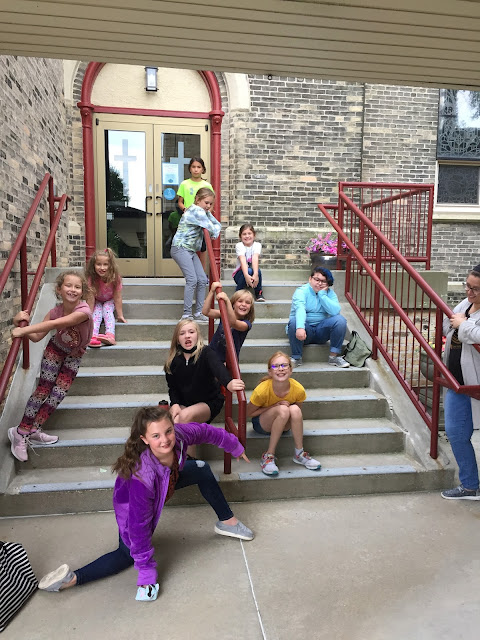Noticing
It has been so lovely hearing the sounds of piano, singing, and laughter in the halls of Take Note Studio this fall! After a year and a half of uncertainty, we are thankful to be together again.
The class I teach, theatrical singers, was fully virtual last year, and transitioning back to in-person learning has been both wonderful and challenging. My co-teacher, Miss Heather and I have been brainstorming ways to help our students remember how our class works through meaningful interactions instead of lectures. We’re not a typical classroom, we like to keep things loose and fun to encourage participation, but with a group of elementary school students, you might imagine that things can veer off course rather quickly. One thing we find that works to keep things on track is the power of noticing.
Ms. Heather and I are both devoted Conscious Discipline followers, so noticing has become second nature to us. This, I assure you, has not always been the case. How many of us were told “good job!” for doing anything even remotely positive while growing up? I know I was, and I became obsessed with hearing those two words to validate myself as I grew. There’s no problem with telling your child he or she has done something well, but by employing the phrase “good job” too often, we place the emphasis on our evaluation of our child, instead of placing the emphasis on their own achievement. When we judge children in this way, we tell them who WE THINK THEY SHOULD BE, instead of accepting them as they are. Sorry to have to hit you with the bold and caps there, but it’s important.
Enter, the power of noticing. Noticing provides a play by play description of the behavior or interaction you are witnessing, and empowers adults to accept children without judgment. “Grace, you lined up carefully at the door so others would know how to do it, that was helpful,” is an example of noticing, whereas, “Good job lining up Grace!” places the emphasis on my evaluation of Grace. “Good job” might be an effective way to get the behavior you want, but it doesn’t enable children to notice their own achievement. It’s a subtle shift, and it makes a world of difference. Judging and evaluating implies conditional love and acceptance that makes demands, while noticing teaches acceptance that makes no demands.
Two weeks ago we got a new student in our class. One of our singers approached the new girl with a warm smile, made direct eye contact, and said, “Hi, my name is Skylar, it’s nice to meet you!” Miss Heather didn’t miss a beat and said, “Skylar, I noticed your smile and eye contact as you introduced yourself, that was a helpful way to make an introduction.” Skylar beamed because she was noticed, and that lesson will stick with her because the exchange was about her achievement, not her teacher's evaluation of her. It’s worth remembering that the words we say to our children today will become their inner speech when they get older. Noticing vs evaluating will go a long way in making their inner voice kind and encouraging!
“Good job!” can be a hard habit to break, but once we become aware of it, swapping it for a simple “you did it!” is a nice way to shift our focus from evaluating to noticing. And don't be afraid to use this speech on yourself, too! I did it! I got everyone to music class on time, despite it feeling like surviving the Hunger Games to get here! It’s helpful to make these statements out loud so our children can hear us retrain our own inner speech to be more helpful and healthy, and because we deserve to be encouraged, too.






Comments
Post a Comment